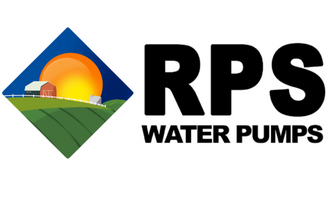

Answering Your Water Pump Questions
with RPS Engineer Mike

At what depth should a submersible pump be installed?
How deep should a well pump be? This is a question we are often asked, and the answer depends on some specific stats about your well. Submersible well pumps don’t have a hard line rule on where they should be installed, it is usually on a case by case basis. A number of factors can play into this, but the main ones will be your well’s total depth, the depth of the static water level (how far down the water sits in your well when not being pumped out), and what the flow rate of your well is (usually noted in your well report after a well has been drilled).
A good rule of thumb is to install it so it is hanging around 10’ above the bottom of the well. The reason you don’t want the pump to sit on the bottom of your well is so that if any sediment or debris were to fall into the well, it will fall to the bottom and there won’t be any risk of sucking that debris into the well pump’s intake and possibly damaging the pump. So the safest spot to place the pump is a little ways off the bottom of the well. However, if your well is strong and produces a high volume, then you can often place it higher above the bottom of the well. As an example let’s say you have a 200’ deep well with a 30’ static water level, if the well is producing more gallons per minute than you will be pumping out of it, you can place that pump at 150’ in the well and you would have no problems. This is because with a high producing well, you will be pumping water out of it slower than the well can put the water back in, so the water level in the well shouldn’t change when the pump is running.
Something else you may need to take note of is the submersion limit of the pump, which is how far the pump can be submerged under the surface of the water level. Oftentimes this is not an issue, as many pumps have submersion limits of 600’+, but if you have a very deep well then this can become a factor that you will need to consider. If you were to submerge a well pump beyond its submersion limit, the water pressure will start to become so high that the seals on the pump won’t be able to handle it. While it may not immediately be a problem, some pumps will work for a bit while submerged beyond the recommended limit, this can cause your pump to fail earlier than it would if it were placed above the manufacturer recommended limit. If you don’t know what kind of volume your well is capable of producing, then the safest option will always be to put it close to the bottom so that you can take full advantage of the water column above the pump, so long as that depth is not below the submersion limit of the pump.
Take the Next Step to Water Independence
Learn More About Water Pumps
-
 If you’re considering replacing a well pump and it’s your first time, you may have questions about long it may take. We often say a full install only has to be a couple of hours, but is that actually accurate?Read now
If you’re considering replacing a well pump and it’s your first time, you may have questions about long it may take. We often say a full install only has to be a couple of hours, but is that actually accurate?Read now -

How many GPM is a good well pump?
Water needs can differ significantly depending on circumstances, and you may need a submersible well pump with a significantly higher or lower flow rate, depending on household size, irrigation needs, and sprinkler use.Read now -

Can you put in too big of a pressure tank?
When it comes to sizing a well pressure tank, there really isn’t an upper limit as to how big of a tank you can put in. There are some pros and cons to different size pressure tanks, and they can have an impact on the lifespan of your pump.Read now




